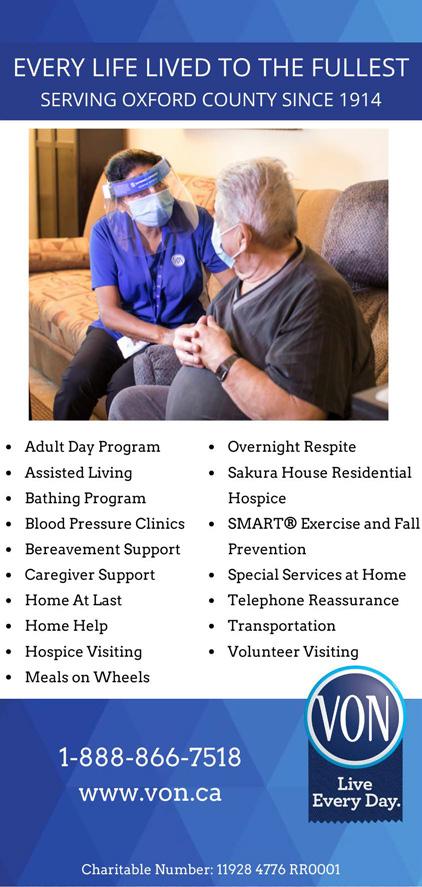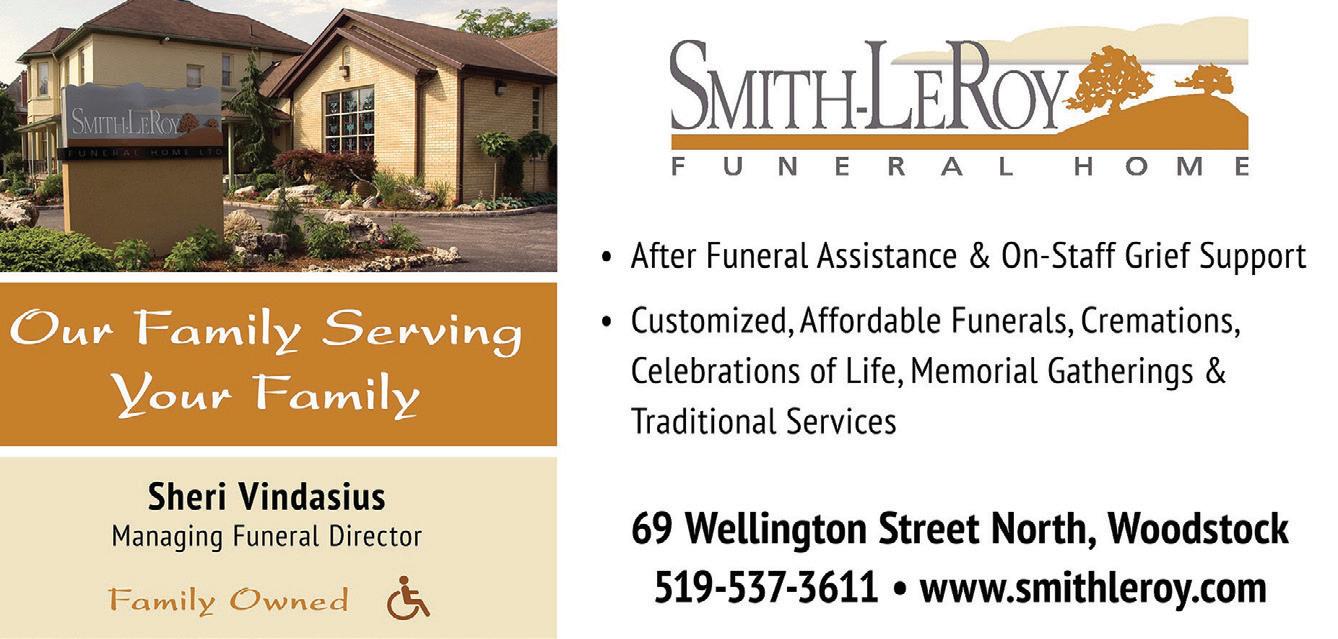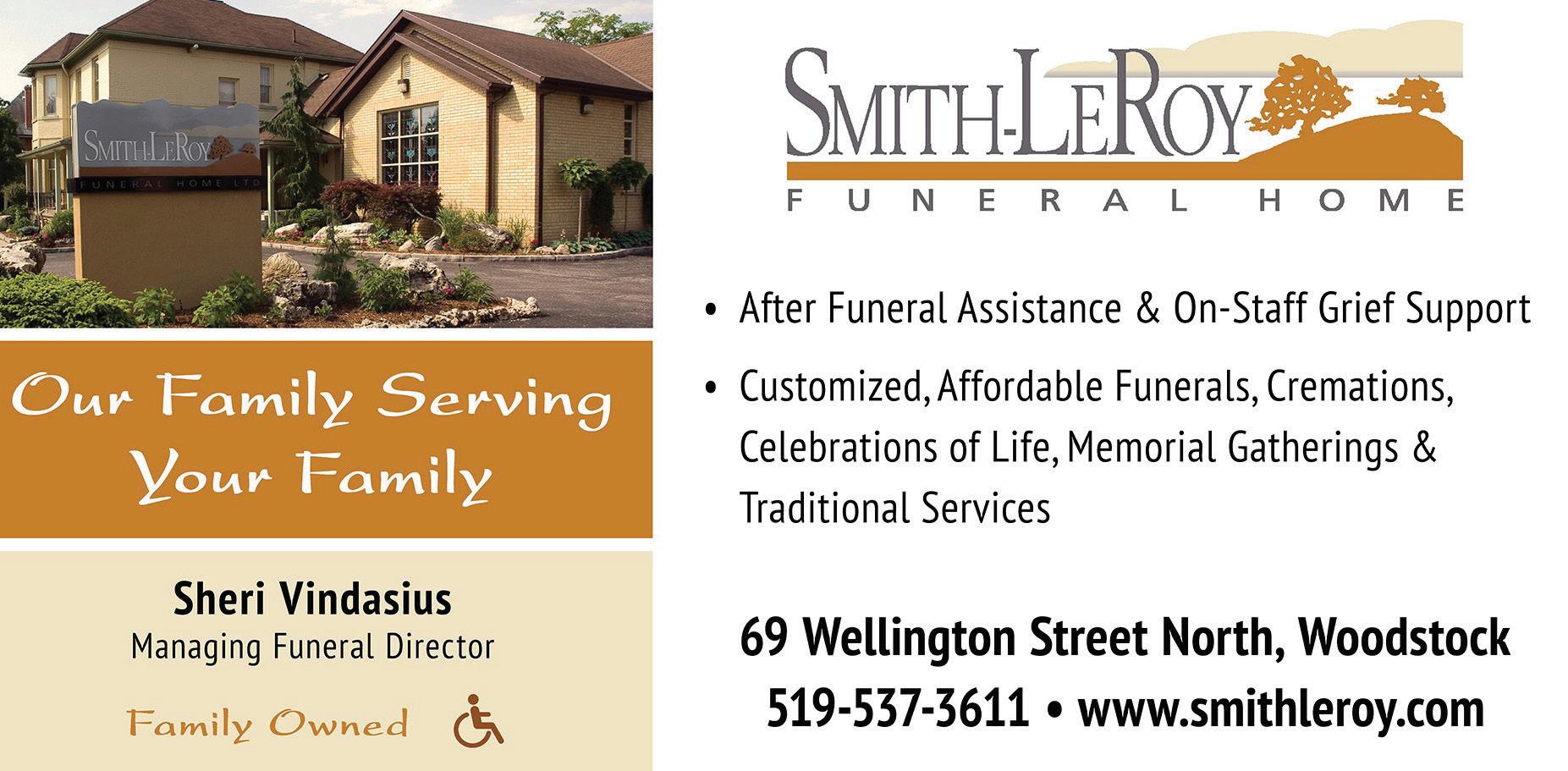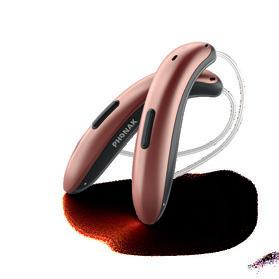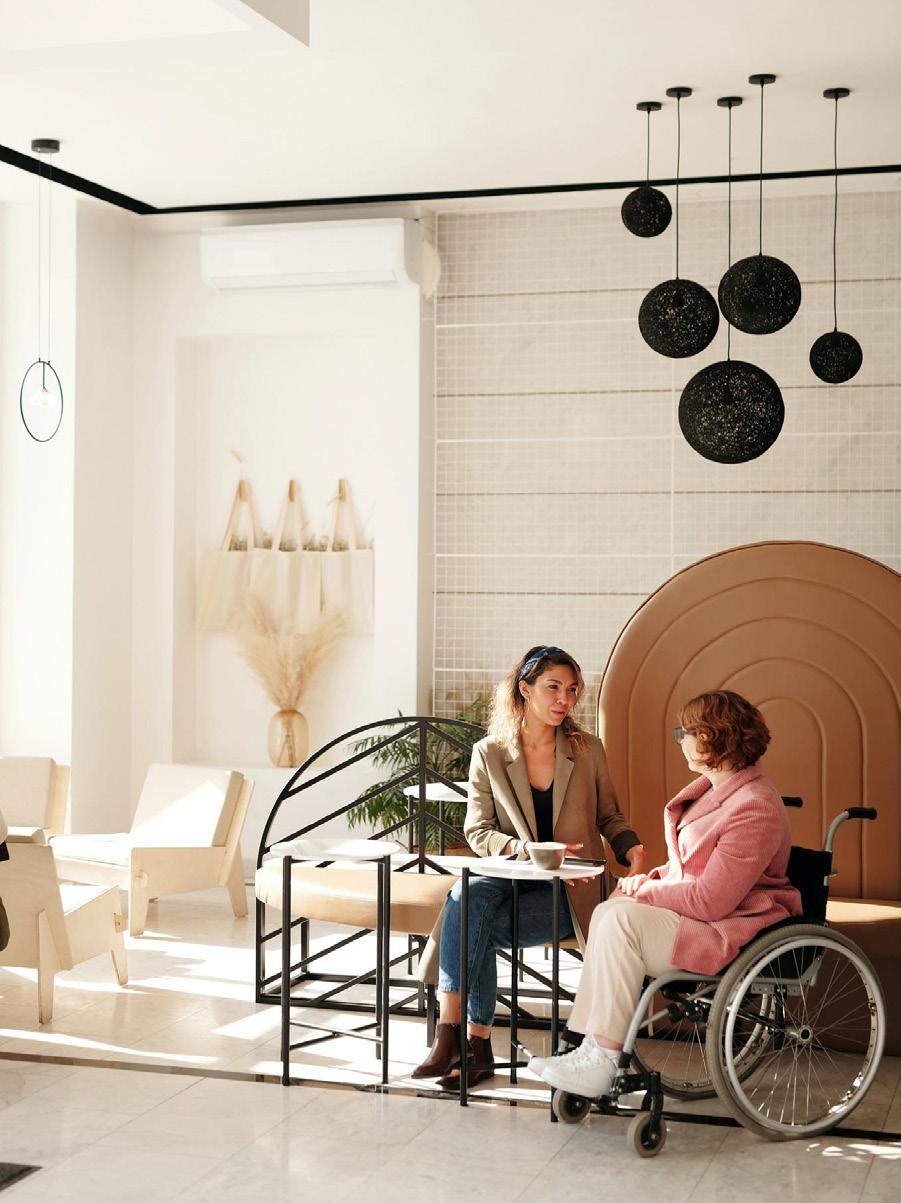




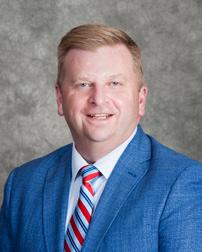
Perry Lang, President & CEO
Strategically located in the heart of Oxford County, our 178 bed, full-service community hospital provides primary care to a population of 55,000 and specialized care to nearly 110,000 residents. Officially opened on August 6th, 2011, our new facility offers a wide range of health programs including Maternal Child/ Women’s Health, Diagnostic Imaging, Surgical Services, Inpatient and Outpatient Mental Health, Dialysis, Rehabilitation and an IV Infusion and Chemotherapy Clinic. Patients and staff moved into our new facility on November 20, 2011.
Owned and operated by the Woodstock General Hospital Board of Trust since 1895, our hospital has a long history of providing healthcare services to Woodstock and the surrounding district. We are a fully accredited facility under the national standards of the Canadian Council on Health Services Accreditation.
As a partner in the South West Home and Community Care, Woodstock Hospital is proud to play a leadership role in working with others to improve the health of our community through the development of innovative, high quality services and programs, while being fiscally and environmentally responsible.
Woodstock Hospital takes pride in its modern, state-of-the-art facility and the dedicated professionals who serve our community. Our healthcare team is committed to providing you and your family with the highest quality, patient-focused care, delivered with respect and compassion, throughout your stay. We are here to help you.
As patients and visitors, your comments and suggestions are always welcomed. Please feel free to contact a member of our management team.


You can get instant news and information from WH’s Twitter, Instagram and Facebook page. See exclusive hospital posts that include photos, links and valuable information.
Woodstock Hospital newsletters are always available online. Past publications, dating back to 2016 can be viewed electronically at www.woodstockhospital.ca.
If you would prefer to have newsletters emailed to you, or know someone who would, please notify us by sending a quick message to info@woodstockhospital.ca. New editions of the newsletter can be easily emailed to anyone!
We want to make sure you’re connected with Woodstock Hospital. Share your experiences and interact with us - it’s a great way to ensure we’re doing the best job possible for our community!
310 Juliana Drive • Woodstock, ON N4V 0A4 • (519) 421-4211 • www.woodstockhospital.ca
Community-oriented, personalized, and quality care
Working collaboratively to advance the health and well-bein
Resourceful
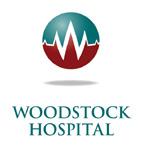

Collaborative
We strive to serve others; building on our collective strengths, expertise, and shared values; for the betterment of our patients, their families, and our community V

We will continue to advance a culture of quality, safe, and timely care that is community oriented and places patients at its heart
We will ensure that patients, families and caregivers are supported to actively play a role in their care while in hospital, and beyond, and that staff have what they need to provide exceptional care
We will grow as an organization and progress to reflect the evolving needs of our community
We will collaborate with our community partners to enhance the quality of life of Oxford and area residents
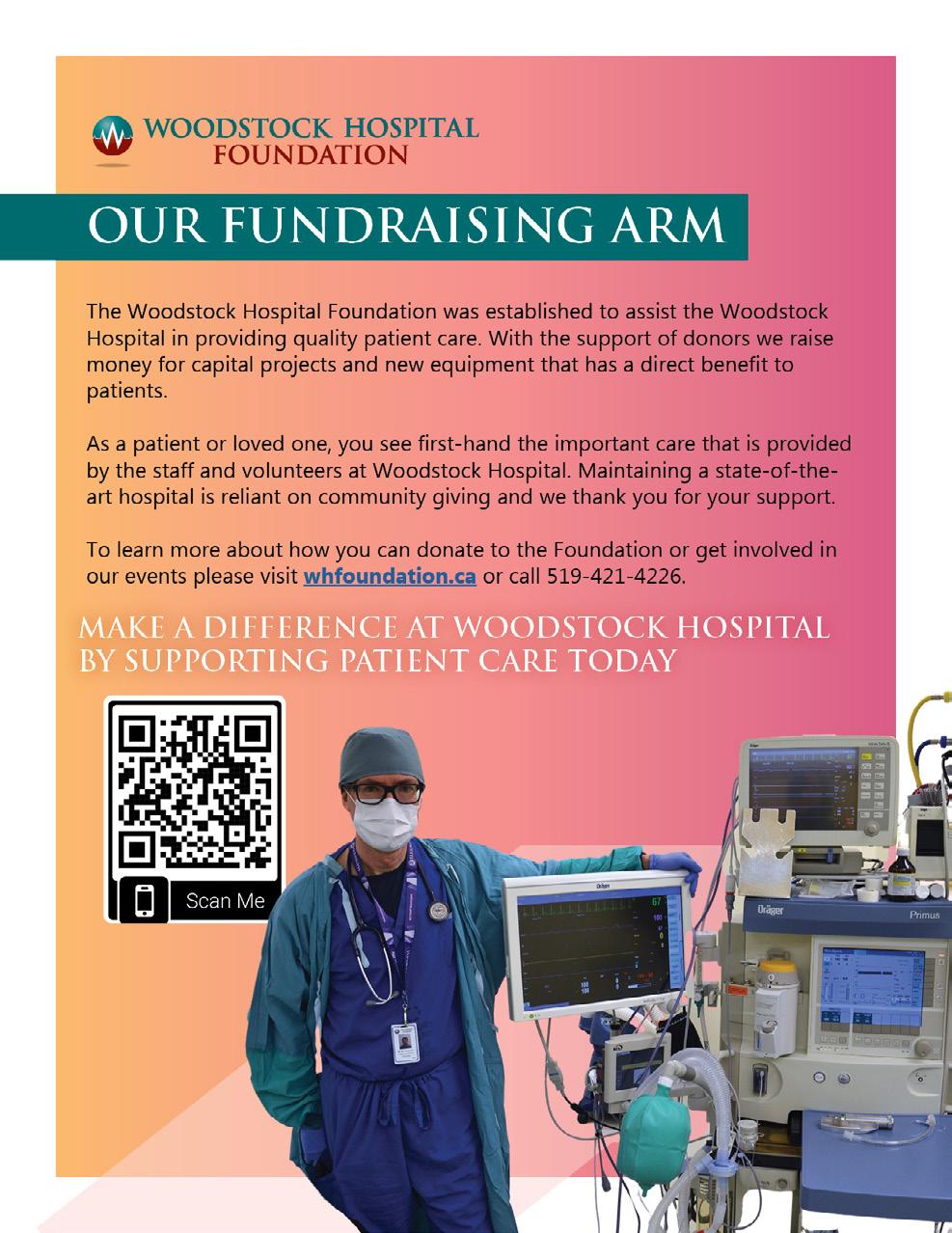


Chapel
Complex Continuing Care
Critical Care Unit
Day Surgery
Inpatient Units
Maternal Child/Women’s Health
Operating Suites
Lower Level
Chemotherapy
Diabetic Education/Nutritional
Services
Dialysis Unit
Education Services
Facilities Management (Honeywell)
Human Resources
Infection Prevention & Control
Information Technology
Inpatient Mental Health
Library
Occupational Health & Safety
Outpatient Mental Health
Tim Hortons
Administration
Cardio-Respiratory
Cashier
Diagnostic Imaging
Emergency
Finance
Foundation Office
Health Records
Information
Inpatient Units
Laboratory
Outpatient Clinics
Outpatient Therapy
Patient Registration/Admitting
Security
Volunteer Services
* Maps are available at the Information Desk in the Main Lobby.
At Woodstock Hospital, we are committed to providing a safe environment for all individuals. As a patient, you play a vital role in your healthcare and safety!
Upon your arrival for treatment, information will be gathered by a registration clerk at which time you will be provided with an armband containing unique identifiers. These unique identifiers will support a safe journey throughout the various stages or transitions of care during your hospital visit. Prior to applying the unique armband, you will be asked your full name and date of birth.
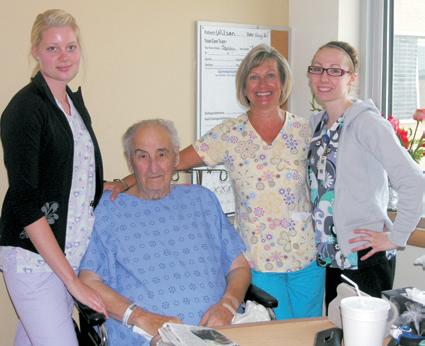
Hospital staff providing direct care or treatment to you or your family member, will use the armband to check for Two Patient Identifiers such as your full name, your date of birth, your hospital identification number, or your picture ID. Your armband is also used to scan prior to medication administration or for the purpose of blood glucose monitoring should you require it. To ensure your safety, an additional verbal check is completed by your care provider (e.g. prior to blood work being drawn) whereby you will be asked to confirm your name and date of birth while the provider checks this information against your armband.
1. Speak up if you have questions or concerns about your care. Before you see your healthcare team:
† Plan the questions you want to ask and write them down.
† If you do not understand the answers, it is fine to repeat the question.
† Bring a family member or friend with you when you talk to your healthcare team. They can be your eyes and ears while you are in the hospital. Interpreter services are available upon request; ask a member of your healthcare team should you require this service.
2. You should understand as much as you can about any medical problems you have such as past illnesses, current medical problems and the treatments you will be receiving. Share with your healthcare team any previous surgeries or if you are feeling unwell prior to a treatment or procedure.
3. Always wash your hands after going to the washroom and before eating. Don’t be afraid to ask your healthcare professional to wash their hands, too. Hand washing is the single most important thing that anyone, including you, can do to prevent the spread of infection.
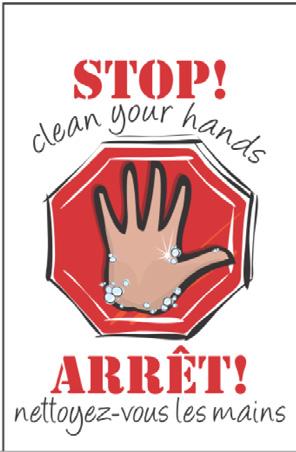
4. Tell your healthcare providers if:
• You do not understand the explanation regarding the proposed treatment you will be receiving
• You have had a fall at home or feel unsteady on your feet
• You are taking any medicine
• You use substances such as drugs, alcohol or tobacco
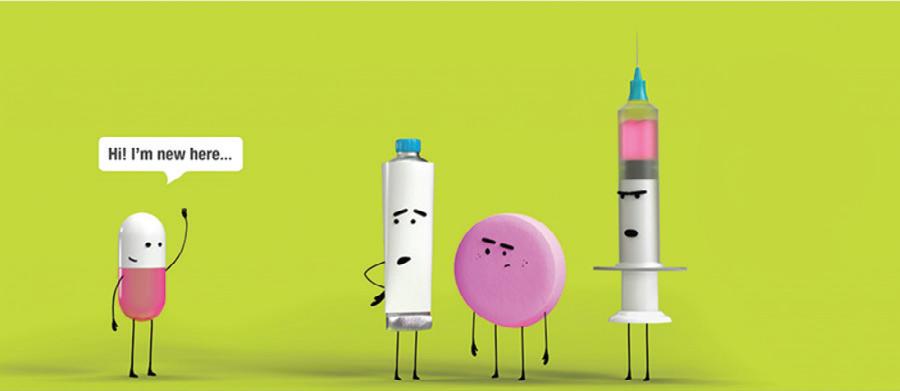
Whether you’re a patient or a healthcare provider, one conversation is all it takes to reduce the risk of harmful drug interactions.
www.asklistentalk.ca #asklistentalk
5. Keep a list of all medicines in your purse or wallet at all times (this can often be obtained from your local pharmacy). Sharing your medication history is important. Some medicines combine with each other in your body and may produce unexpected reactions. To protect you, your healthcare team must know about everything you take. This includes the medications you take with a doctor’s prescription as well as medications you may buy without a prescription such as:
† vitamins
† herbs and herbal remedies
† food supplements
† “over the counter” or non-prescription medicine you buy at the drugstore
It is also important that you look at all the medications you receive while in hospital. If the medications you are given do not look familiar, ask your doctor or nurse for more information prior to taking the medication.
6. Tell a member of your healthcare team if you have ever had an allergic or unexpected reaction to any medicine, food, product (soap or tape) or environmental condition. During the course of your stay with us there may be many times when you are asked about your allergies. It is important to remember how you reacted to the allergen in the past. For example, do you become itchy or does your breathing change? This is important to help guide decisions in your care. Sometimes it can be difficult to tell the difference between a true allergy and unwanted side effects. Even side effects are important to share with your care provider as they can help determine the best and most comfortable course of treatment. With our integrated electronic health record, we are able to see any previously documented history related to your allergies. It is important to review these
allergies at each and every visit to be sure there have been no changes or additions. Medication safety requires a team approach that involves you and your family. We want to make sure that there are many checks in our system to ensure your safety. Your health and well-being is important to us.
7. Make sure you know what to do when you go home from the hospital. When patients are discharged from hospital, it can sometimes be an overwhelming experience especially when receiving a lot of information verbally and in writing. Sometimes information may be misinterpreted or not fully understood. In an effort to enhance a positive experience upon discharge from Woodstock Hospital, we have revised our discharge documentation process to ensure patients have a clear understanding of discharge instructions prior to going home. The Patient Oriented Discharge Summary (PODS) focuses on building a positive discharge experience for our patients. Patients are provided with written information and instruction, with a section on the form for patients or family members to write down questions they may have about the information that is provided. The information is then reviewed with a member of the healthcare team to provide an opportunity to clarify information. The patient is able to take this information home to refer to after discharge.
When you are preparing to go home from the hospital, ask as many questions as you can to make sure you understand:
• the treatment you received
• what kind of transportation you will need to go home
• the type of care you need at home and if you will need someone to stay with you
• what medicine you must take, how to take it, and any side effects
• whether you will have to pick up a prescription before you go home
• any food restrictions you may have
• when you can go back to normal activities such as work, school, exercise and driving
• what follow-up appointments you will need and who will make them
A copy of the Patient-Oriented Discharge form is available as a reference on page 14 of this booklet.
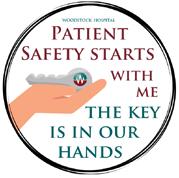
In February 2014, Woodstock Hospital introduced electronic technology for ordering tests and prescribing medications, including the addition of barcode technology on the inpatient units to ensure the right patient is receiving the right medication at the right time. In November 2018, the Emergency Department (ED) began documenting your care into the electronic patient chart and using barcode scanning for the administration of medications. Patients who receive medications in the ED now follow the same processes as the inpatient areas by having their armband scanned prior to receiving a medication. This is a very important initiative for Woodstock Hospital and we are among the very few Emergency Departments to move forward with this patient safety feature. This new process helps to reduce the risk for medication errors at the beginning of the patient journey through the Emergency Department.
Falls among seniors is a concern Canada-wide, especially in people over the age of 65, however, falls can occur in people at any age due to:
• Unfamiliar surroundings
• Weakness or dizziness related to medications or surgery
• Different beds or chairs
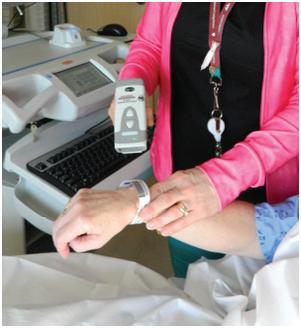

• Medical conditions such as severe infections
We want you to be able to move about as freely and safely as possible while in our hospital, but it is important to remember that falls happen in hospitals for many reasons, and you play a role in staying safe by;
• Wearing proper fitting shoes or slippers with a firm fit and non-slip soles
• Not letting your clothing or housecoat belt drag on the floor which could cause you to trip
• Using your assistive devices such as cane walker or wheelchair as required
• Using eyeglasses and hearing aids as required (when not in use, please keep them in your bedside table so they do not become lost. The hospital is not responsible for lost items)
• Moving slowly when changing position especially when going from lying to standing
• Calling for assistance especially when feeling weak or dizzy. Sleep medications and unfamiliar surroundings can pose a risk for falls, especially during the night
• Not adjusting safety devices or side rails on the bed; use your call bell to ask for assistance
• Do not lean on tables, chairs or hospital equipment for support as some of these items may move more easily
In every hospital, patient care is transferred from one nurse to another at shift change or when moving a patient from one department to another (e.g. Emergency to Inpatient area). Studies have shown that patients could be vulnerable to risk if miscommunication occurred during the “handover” period. Based on the results of these studies, Woodstock Hospital developed a TOA process to enhance patient safety. Transfer of Accountability is comprised of several components designed to improve communication using a consistent approach to sharing of information between nurses within a patient care unit, at change of shift and between departments. This transfer of information ideally occurs at the patient’s bedside and involves the patient in the sharing of information.

Being treated with dignity and respect
Being treated with dignity and respect
Treating me in a kind, compassionate, non-judgmental manner with an understanding of my individual needs, regardless of my age, gender, race, religion, sexual orientation or abilities
Treating me in a kind, compassionate, non-judgmental manner with an understanding of my individual needs, regardless of my age, gender, race, religion, sexual orientation or abilities
Treating my family and caregivers with respect and as a valuable contributor to the care team
Treating my family and caregivers with respect and as a valuable contributor to the care team
Being treated with dignity and respect
Being an active, informed participant in my care
Have my opinions heard and respected
Receive information, in terms and language I can understand, so that I may make informed decisions, in conjunction with my family and health care team Being an active, informed participant in my care
Have my opinions heard and respected
Treating me in a kind, compassionate, non-judgmental manner with an understanding of my individual needs, regardless of my age, gender, race, religion, sexual orientation or abilities
Treating my family and caregivers with respect and as a valuable contributor to the care team
Receive information, in terms and language I can understand, so that I may make informed decisions, in conjunction with my family and health care team
Knowing I am listened to and have a voice
Being an active, informed participant in my care
Have my opinions heard and respected
Knowing I am listened to and have a voice
Being able to express my appreciation, or concerns about my health care experience, knowing that my providers are actively listening and that my feedback will positively affect my continued care
Receive information, in terms and language I can understand, so that I may make informed decisions, in conjunction with my family and health care team
Receiving the highest quality care
Knowing I am listened to and have a voice
Being able to express my appreciation, or concerns about my health care experience, knowing that my providers are actively listening and that my feedback will positively affect my continued care
Receiving the highest quality care
A
Having health care providers introduce themselves and identify their role in my care
Being able to express my appreciation, or concerns about my health care experience, knowing that my providers are actively listening and that my feedback will positively affect my continued care
Having timely and convenient access to the best quality services, delivered in a safe and well-coordinated manner, throughout all stages of my care
Receiving the highest quality care
Having health care providers introduce themselves and identify their role in my care
Having timely and convenient access to the best quality services, delivered in a safe and well-coordinated manner, throughout all stages of my care
Having health care providers introduce themselves and identify their role in my care
Having timely and convenient access to the best quality services, delivered in a safe and well-coordinated manner, throughout all stages of my care
By providing accurate information, including changes in my medical condition and taking a pro-active role in the healing process
A s a p a t i e n t o r c l i e n t , I u n d e r s t a n d t h a t . . .
I share the responsibility for my care and well-being
I share the responsibility for my care and well-being
By being respectful of the rights, privacy, property and cultural diversity of all, including members of my healthcare team, as well as patients and their families I share the responsibility for my care and well-being
By providing accurate information, including changes in my medical condition and taking a pro-active role in the healing process
By providing accurate information, including changes in my medical condition and taking a pro-active role in the healing process
By being respectful of the rights, privacy, property and cultural diversity of all, including members of my healthcare team, as well as patients and their families
By being respectful of the rights, privacy, property and cultural diversity of all, including members of my healthcare team, as well as patients and their families

At Woodstock Hospital, we are committed to protecting the privacy of our patients and recognize that personal health information must be treated with respect and sensitivity. As a patient at Woodstock Hospital, your personal health information is essential to your healthcare team. It allows us to provide you with the best possible care. Your request for healthcare services implies that you consent to the collection, use and disclosure of your personal health information for specific related purposes.
We collect personal health information about you from you or from the person acting on your behalf. The personal health information that we collect may include your name, date of birth, address, health history, records of your visits to Woodstock Hospital and the care that you received during those visits. Occasionally, we collect personal health information about you from other sources, if we have obtained your consent to do so, or if the law permits.
Access to your personal health information is available to those who need it in order to provide care. This will include physicians, nurses, technologists, therapists and other health professionals. This is essential in providing you the best possible care.
We also disclose your personal information for the following services at Woodstock Hospital. You can opt out of any of the disclosures below. Please notify the registrar, your nurse or contact the Privacy Office (contact information below) to opt out of:
• Our patient directory;
• Woodstock Hospital Foundation (Fundraising); and/or
• Your faith community affiliation (Spiritual Care)
Your Choices:
You or anyone to whom you have given written permission, including your legal representative, have the right to read or request a copy of your health record. In order to access your information, we prefer that you put your request in writing. There may be a charge for such a request; you will be informed beforehand of any applicable charges.
For more information about our privacy practices or to raise a concern about our practices, you may contact our:
• Privacy Officer: Tel: (519) 421-4233 ext. 2303 Fax: (519) 421-4216
Email: privacy@woodstockhospital.ca
• Website: www.woodstockhospital.ca
If you have questions or concerns, you also have the right to contact:
The Information and Privacy Commissioner of Ontario 2 Bloor Street East Toronto, ON M4W 1A8
Telephone: (416) 326-3333 or 1-800-387-0073
Fax: (416) 325-9195
Website: www.ipc.on.ca
Our patients and their families are the primary focus of Woodstock Hospital. It is very important that you and your family participate with the healthcare team in planning and making decisions regarding your care and treatment. We want to give our patients and families our full attention! To assist us, we ask that you designate one family member to act as spokesperson, who can relay information to others.
You and your family are free to discuss your care at any time with members of the healthcare team. If you have any questions or concerns, a Charge Nurse is available 24 hours a day.
Note: The hospital is NOT responsible for any lost items; please leave all valuables at home.
Effective pain management is a goal of the healthcare team. Members of the team will ask you to rate your pain on a 0 to 10 scale (0 is no pain and 10 is the worst/severe pain). This pain rating scale is used to assess if the medication you have received is successful in decreasing your pain; if not, changes will be made. The nurse will offer pain medication at regular intervals as ordered by your physician. You should also let the nurse know if you are having pain, especially if the current method of treatment is not working so that he/she can advocate for adjustments to your treatment plan.

The moment you are admitted to our hospital, planning begins for your discharge. This planning process involves a variety of members of the healthcare team and may include your physician, nurse, physiotherapist, occupational therapist, social worker, dietitian, and case Manager for the South West Home and Community Care. We consider you and your family vital members of the team. When you are discharged from the hospital, ask your doctor, nurse or case manager (if applicable) to explain your home treatment plan. Make sure you know of any future appointments you may have and which medications to take when you go home.
Discharge time is 11:00 a.m.

ON
I came to hospital because I

Medications I need to take
See Discharge Summary
My medications, their purpose and side effects have been explained to me, if I have questions I can call my Pharmacist.

Changes in My Routine See handout
Activity (ie dietary, physical)
Who to contact if I have concerns about my condition or treatment
My family doctor call Dr. My Pharmacy call Health questions call Telehealth 1-(866)-797-0000
Other call Is Southwest
I may feel I should do Go to the Emergency Department if Please


Appointments
Go see for on at Location Phone
Go see for on at
Go see for on at
Go see for on at
For further information, please see information handouts.
My own notes
Advocate for your healthcare sa fety. Empower yourself with information and tools to help you ask good questions. Connect with the right people, and learn as much as you can to keep you or a family member safe while receiving healthcare.

Ask someone to go to your appointment with you (or to stay with you during a virtual appointment) to help you understand and remember answers to your questions. Write down the questions you have for the visit.
Create a health history that includes your current conditions and past surgeries or illnesses, as well as all your medications. Bring it to your appointment.
Know your family’s health history, such as your parents’ medical conditions. Bring all your medications including prescriptions, non-prescription medicines (e.g. Aspirin, antacids), vitamins, and dietary or herbal supplements.
Explain your symptoms, health history, and any problems with medicines you have taken in the past. Ask questions to make sure you understand what your doctor or healthcare professional is telling you. Let your doctor know if you are worried about being able to follow his or her instructions. If your doctor recommends a treatment, ask about options.
If you need a test, ask:
How do you perform the test?
How will it feel?
What do I need to do to get ready for the test?
How will I get the results?
If you require a prescription, tell your doctor if you are pregnant, are nursing, have reactions to medicines, or take vitamins or herbal supplements. Find out what to do next. Ask for written instructions, brochures, videos, websites.
Always follow your doctor’s instructions.
If you do not understand your instructions after you get home, call your doctor. Talk with your healthcare provider or pharmacist before you stop taking any medicines that your doctor prescribed.
Call your doctor if your symptoms get worse or if you have problems following the instructions. Make appointments to have tests done or see a specialist if you need to.
Call your doctor’s office to find out test result s. Ask what you should do about the results.
The staff at WH are committed to providing you with the best possible care. We want to meet and exceed your expectations when it comes to care and service. To achieve this, we are continually evaluating and improving the care we provide.
We monitor our performance by participating in patient satisfaction surveys. This survey is distributed to a random selection of patients who received services at the hospital. Our results are compared to other hospitals in Ontario.
All of our staff want to make your stay as pleasant and safe as possible. If you have a compliment, please contact the department manager. We will be happy to forward your compliments to staff that provided you with care and, with your permission, may include them in our Service Excellence staff newsletter.
We understand that at times, despite our best efforts, situations which may cause concern can occur. If you have questions or concerns regarding the service you or your family member received, you may be able to resolve the issue by talking to the caregiver who provided you with the service, or you may speak directly with the unit/department charge person or Director. If, however, you are unable to resolve your concern, the Patient Experience Office at ext. 3667 may be able to help you. A Hospital Coordinator is also available during the evening or on weekends, if you wish to speak with someone representing the hospital administration.
We will:
• Listen to your concerns
• Refer your concern to the healthcare provider that can assist you
• Assist in resolving your concerns
• Talk to staff on your behalf if you wish
• Make recommendations for improvements where necessary
• Explain the hospital policies and your rights and responsibilities
• Accept any compliments that you have for our service
To access our confidential phone line, please call (519) 421-4211 ext. 3667 and leave a message, or email patientfeedback@woodstockhospital.ca. We will respond to your concern in a timely manner.
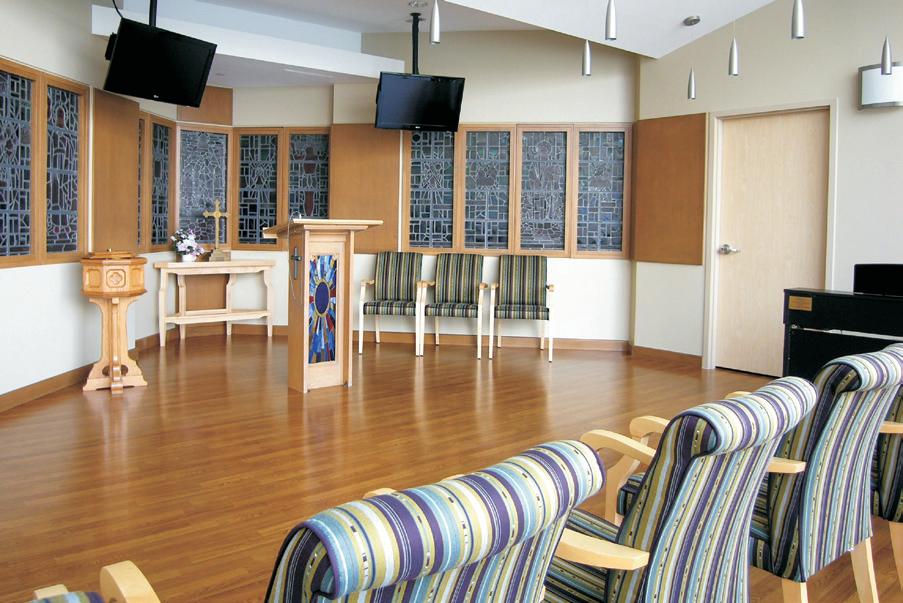
Our accessibility program includes the WH Accessibility Plan, which is updated yearly with input from an external panel of people with disabilities; the WH Accessible Customer Service Policy; on-going accessibility education for staff, students and volunteers; notice of service disruptions affecting people with disabilities; and a series of feedback methods. Patient documents are made available for people with disabilities in a variety of formats upon request. If you have a comment or question about accessibility here at WH, please contact the hospital Accessibility Coordinator at ext. 2286 or you can view our accessibility plan on our website www.woodstockhospital.ca.
Automated bank machines are located beside Pharmasave (to the left of the elevators), inside the Emergency Department, and in the cafeteria, Lower Level.
The payment of any uninsured services will be requested upon discharge. Patient accounts may be settled at the Cashier’s desk located beside the information desk in the Main Lobby.
A bus stop is located west of the Main Entrance.
Please use the call bell as instructed by staff.
Change machines are located beside Pharmasave, inside the Emergency Department and at the Athlone Avenue entrance.
A beautiful chapel and prayer room are located side by side on the Second Level. The chapel and prayer room are open at all times and available for meditation and prayer. A service is held every Sunday morning at 9:30am. If you want to be visited by a spiritual care provider, please inform your nurse. Your own pastor is welcome to visit at any time.
You may be asked to provide a verbal consent or sign a consent form for certain tests, procedures and treatments. Before signing, make sure you know and understand the benefits and risks involved. This is called informed consent. If you want more information or have questions before signing, talk to your doctor. You have the right to refuse treatment but make sure you know what may happen if you do.
A Registered Dietitian is available to provide nutrition education or to help with adjusting your meal plan. If you would like to speak to a Dietitian while you are in the hospital, ask any member of your healthcare team to arrange a visit. An Outpatient Dietitian is also available to provide nutrition counselling after you leave the hospital. Ask your doctor for a referral.
E-mails are a free service offered by WH. This enables you to send a personalized message to your loved one or friend while they are a patient at the hospital. Volunteer Services will print your e-mail and deliver it to the patient. To send a greeting, email ecard@woodstockhospital.ca.

Every effort is made to protect the hospital against fire. Our staff practices fire safety procedures regularly. Do not worry if you hear a fire alarm bell. Should a real emergency exist, we will tell you at once and our trained staff will help you. Fire exits are clearly marked throughout the hospital. During a fire alarm, elevators are shut down and all fire doors automatically close. Please stay in your area unless hospital staff directs you otherwise. Overhead paging will announce the “All Clear” when the fire alarm is over.
If you receive flowers, they will be delivered by the florist’s delivery service. Please be advised that flowers with strong odors may not be permitted in your room due to our Fragrance Free Policy.
Good nutrition is an important part of your treatment and recovery. Menu selections in the hospital are based on Canada’s Food Guide to Healthy Eating. Individual patient needs are also considered. A pantry is available on every unit where a snack can be obtained which may include a sandwich, beverage, oatmeal or cookies. Please ask your nurse if you would like something from the pantry to make sure it is compatible with the diet you are on while at the hospital.
Patient Food Services will deliver the right meal to the right patient at the right time. Ensuring that we are concentrating on patient-focused care. Meal service for breakfast is at 8:00am, lunch at 12:00pm and dinner at 5:00pm.
Retail Food Service features Aramark Canada “True Express” featuring Tim Hortons. The hours of operation are Monday to Friday 6:30am to 5:00pm with weekend and statutory holidays from 6:30am to 3:30pm.
The Hospital Library is open Monday to Friday from 8:00am to 4:00pm on the Lower Level in Room L201, located inside Staff Development. The Library is open to patients for computer use to find the best websites for reliable health information, book swap and comfortable seating. The Librarian is onsite during opening hours.
Located on the Main Level in Room M246 (inside the Foundation Office). Help is at the push of a button with the Lifeline Medical Alert Service. Be prepared for any emergency so you can remain confident, stay active and continue to live independently. We also provide a fall detection option.
Outgoing and incoming mail service is available.
The Juliana Drive and Athlone Avenue entrance parking lots require a $4.00 payment upon exiting (coin, Visa or Mastercard). Change machines are available and are located beside Pharmasave, inside the Emergency Department and at the Athlone entrance.
Also available is a weekly pass of $10/week, or a monthly pass of $30 (a deposit of $10.00 is required, which will be reimbursed on return of the card). Please see the Cashier in the Main Lobby or the Finance Department. After hours or weekends, please see Switchboard.
We are a scent and latex-free facility. This may include perfumes, scented soaps, hairspray, flowers, etc.
To protect the privacy of patients, visitors and staff, photography, video and audio recordings are not permitted. There are exceptions in the Maternal Child/Women’s Health Unit (with permission of staff).
There is a Pharmasave retail pharmacy located conveniently on the main level near the Main Entrance should you wish to obtain your prescription prior to leaving the hospital. They also carry additional items including small gifts, personal hygiene products like toothpaste, toothbrush, deodorant as well as vitamins and other over the counter medications.
Smoking/vaping is not permitted in the hospital facility or on any hospital property, including grounds and parking lots.
There is a telephone in the main entrance (Juliana Drive) and the Athlone Avenue entrance, with a direct line to taxi services.
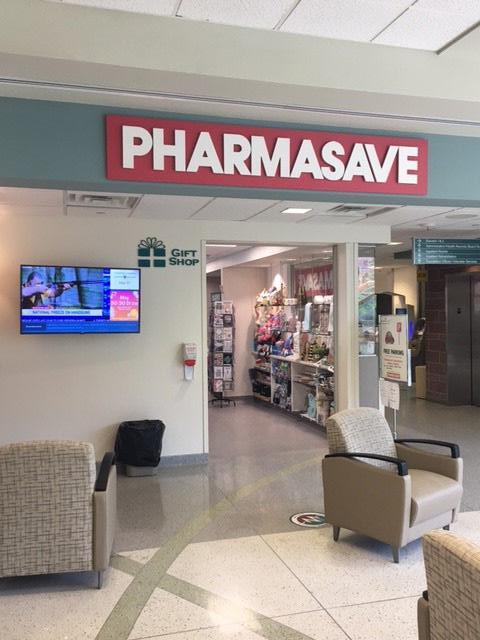
For your convenience, a telephone is located beside your bed. All long distance phone calls must be charged to your calling card or home number. Family and friends who wish to call you can make a direct call to your room by dialing (519) 421-4233 and the extension number that appears on your bedside phone.
There are 21.5-inch patient TVs in most patient rooms. You have access to TV channels, radio, games, music, books, audio/e-books, and video chat, and you may be able to log into your streaming accounts. For assistance, please speak to your nurse.
Patients are encouraged to keep all valuables (i.e. cash, jewellery) in the safety of their own home. Unfortunately, the hospital cannot be responsible for the loss of your personal items including dentures, hearing aids and electronic devices.
• Daily 11am to 8pm
• Please only visit patients if you are feeling well and wash your hands or use alcohol-based sanitizer when entering and exiting the hospital. Limit of two visitors per inpatient at a time. Additional consideration may be given to pediatric, long-stay, and labouring patients and other circumstances at the discretion of the clinical care team. For departmental-specific visiting, please visit the website www.woodstockhospital.ca.
We have a wonderful Volunteer Program providing a helping hand in many locations and departments throughout the hospital. Here are a few of the areas where volunteers are available to assist you:
Information Desk, In-Patient Units, Surgical Daycare, Physiotherapy/Occupational Therapy, Outpatient Clinic, Foundation, Diagnostic Imaging, Staff Development, and Chapel.
Do you have a few hours each week that you would like to devote to hospital volunteering? At Woodstock Hospital, we need caring people to become part of our healthcare team and help us continue to provide quality care to our patients. Our coordinator of Volunteer Services can be reached at ext. 3650.
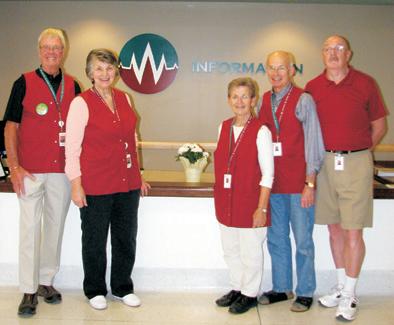
Patient and Family Advisor volunteers are members of the community who have experience as a patient or family member/caregiver at our hospital. They act in an advisory capacity, providing input and making recommendations on matters that impact the patient and family experience at the hospital. Some qualities that are important to have if you are considering becoming a Patient and Family Advisor include a passion for enhancing the health experience for others, being a good listener, and being able to promote the mission of our hospital. If you are interested in joining the Patient and Family Advisory Council, please download an application from the Patients and Visitors tab on our website at www.woodstockhospital.ca.
Wi-Fi is available throughout the hospital with some restrictions in special care areas.
Name:
Date:
Unit/Department where I was treated:
Health problem(s) I was treated for:
Medical treatment I received:
Instructions for care at home:
Proposed discharge date:
What should I eat or drink?
What should I avoid eating or drinking?
What activities can I do?
What activities should I avoid?
When can I return to work/normal activities?
Name of medicine(s) I am taking:
Why am I taking it?
How should I take it?
Follow-up appointments:
Other important questions and/or information:
Woodstock Hospital is grateful to all contributing advertisers, without whose support this directory would not have been made possible. However, an advertisement in this guide does not imply endorsement by Woodstock Hospital.


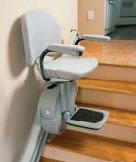
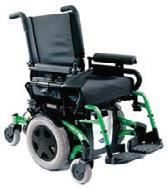
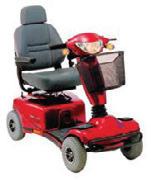
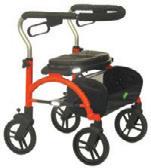
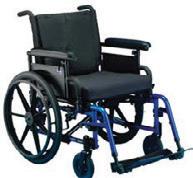
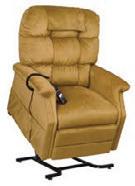

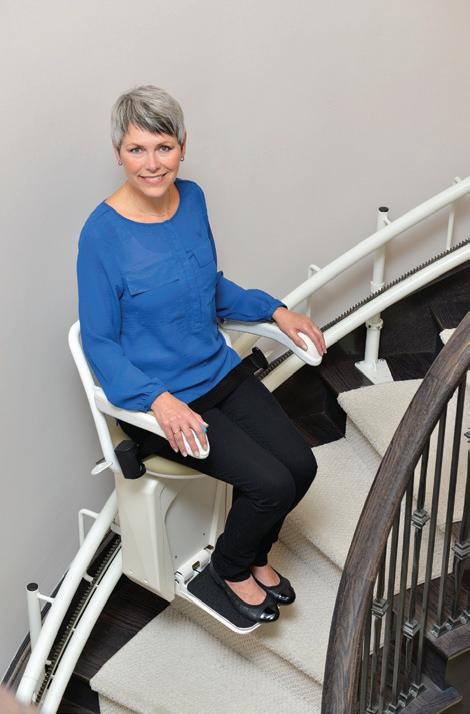

Our staff carefully works alongside healthcare professionals to provide the best solutions for clients – from ceiling lifts to stairlifts, from bath safety to walkers and wheelchairs. We provide free in-home assessments, delivery, professional installation service and some rental programs. We are also pleased to assist clients with funding program applications.

















